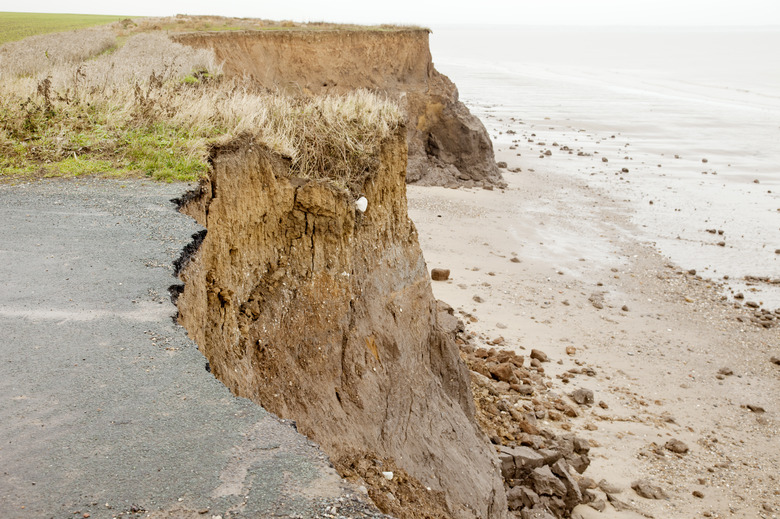Economic Impact Of Coastal Erosion
Catastrophic storms such as Hurricane Katrina, as well as general concern about global climate change, have heightened awareness of the impacts of coastal erosion. Receding shorelines have not only ecological impacts but economic ones as well.
Identification
Identification
Coastal erosion, also known as shoreline retreat, is a little-understood phenomenon in which climate changes and human activities result in the loss of shorelines.
Effects
Effects
Economic impact studies suggest erosion affects various economic sectors, including agriculture, fisheries, navigation and shipping and recreation/tourism.
Geography
Geography
A study of the impact of erosion in the Philippines said communities that depend on fisheries for their livelihoods will be especially affected by erosion.
Size
Size
In the U.S., a study of erosion in Louisiana estimated that the Gulf Coast state has lost an average of 40 square miles a year to erosion since the 1950s.
Significance
Significance
Erosion in Louisiana and the U.S. Gulf Coast can negatively impact the nation's economy because of the concentration of oil refineries and energy production there.
Expert Insight
Expert Insight
In the Louisiana study, a Louisiana State University economist estimated that even a three-week disruption in oil supplies resulting from coastal erosion could cost the U.S. economy more than 30,000 jobs and more than $1 billion in earnings over a year.
Cite This Article
MLA
Hall, Shane. "Economic Impact Of Coastal Erosion" sciencing.com, https://www.sciencing.com/facts-5497745-economic-impact-coastal-erosion/. 22 November 2019.
APA
Hall, Shane. (2019, November 22). Economic Impact Of Coastal Erosion. sciencing.com. Retrieved from https://www.sciencing.com/facts-5497745-economic-impact-coastal-erosion/
Chicago
Hall, Shane. Economic Impact Of Coastal Erosion last modified March 24, 2022. https://www.sciencing.com/facts-5497745-economic-impact-coastal-erosion/
